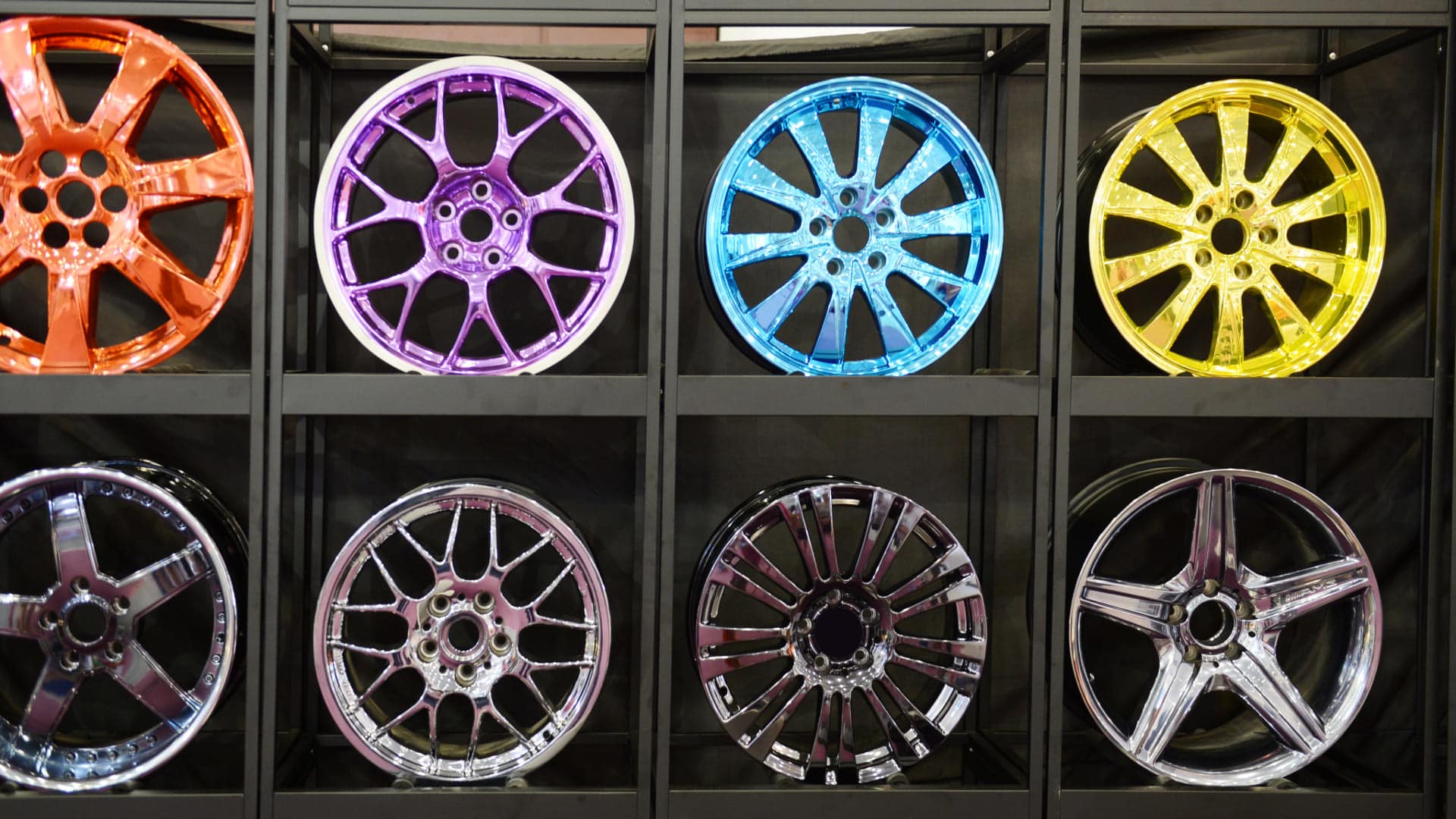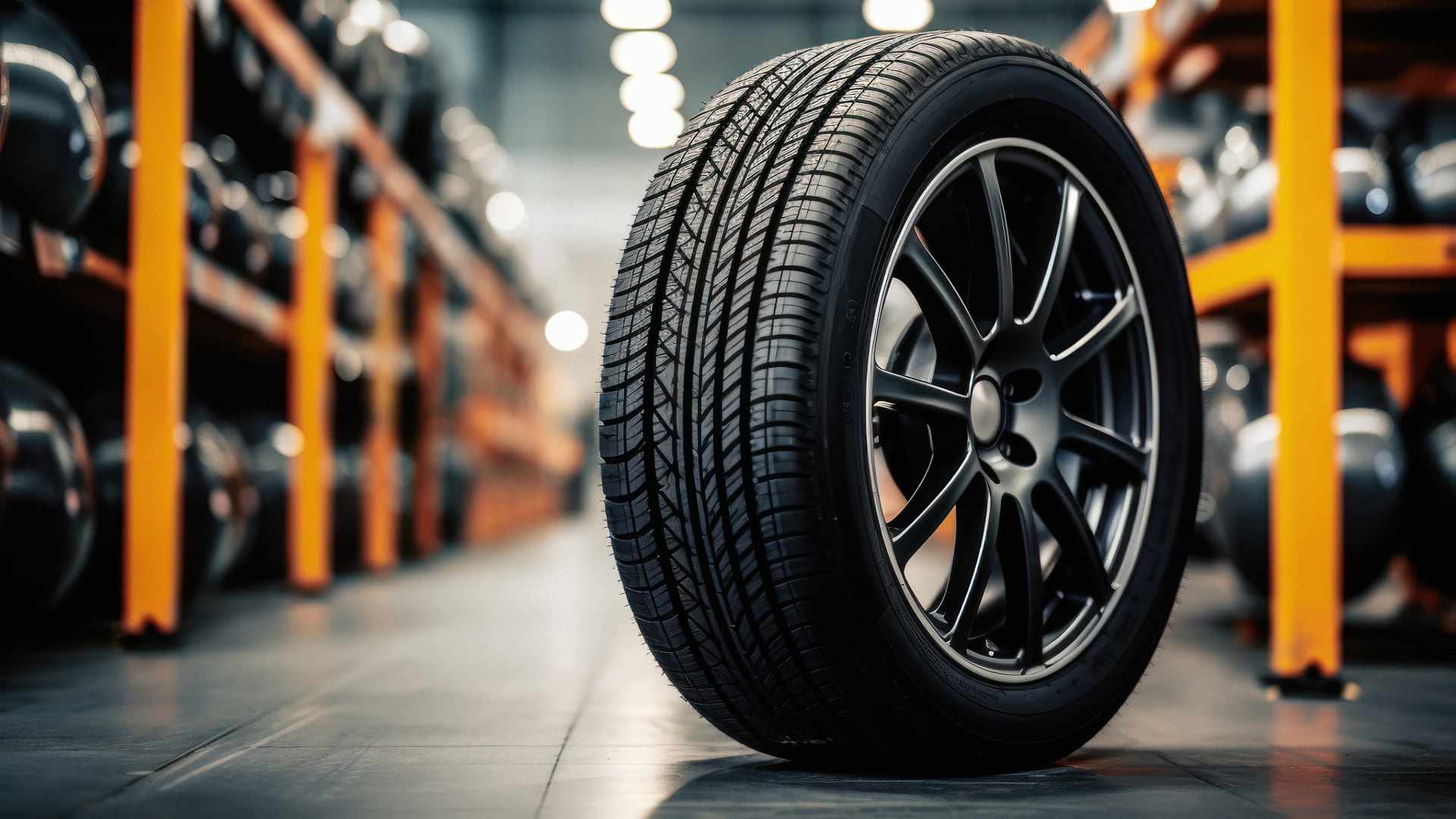Tire News & Information
Best price guarantee
Tire replacement coverage
24/7 roadside assistance
Easy returns

Tire rims do more than just hold your tires in place; they play a key role in how your vehicle performs, handles, and looks. Choosing the right set can improve safety, boost performance, and give your ride a personalized touch.
From sleek, lightweight alloy rims to tough, no-nonsense steel ones, there’s a wide range of options to match your driving needs and style. Modern manufacturing makes today’s rims more durable and efficient than ever, blending strength with smart design.
This article will examine what makes rims important, the types available, and how to find the best match for your vehicle. Whether upgrading for style or looking for better performance, understanding your rim options is a great place to start.
What is a Tire Rim?
A tire rim, often just called a wheel rim, is the outer part of your wheel that keeps the tire securely in place. It’s a key component that connects the tire to the vehicle’s hub, playing a big role in how your car handles and performs. Rims are made from a variety of materials like steel, aluminum alloy, and even high-tech composites like carbon fiber. Each type has its strengths when it comes to durability, weight, and performance.
More than just a mounting point for your tires, the rim affects everything from how your vehicle feels on the road to how it looks. It needs to be tough enough to handle the pressure of daily driving like braking, accelerating, and cornering while also fitting your vehicle’s specs in terms of size, offset, and bolt pattern.
With countless sizes, styles, and finishes available, there’s a rim out there for every vehicle and driving need. Whether you’re driving a compact car, SUV, or heavy-duty truck, your choice of rims can enhance your ride’s performance, safety, and curb appeal. Selecting the right one means thinking about how and where you drive, what kind of look you’re going for, and what fits within your budget. From rugged steel wheels to sleek alloys, understanding your options makes it easier to find the perfect match for your vehicle.
Types of Tire Rims
1. Steel Rims
Steel rims are a no-nonsense, durable option that’s ideal for drivers who need something tough and affordable. Built to withstand rough conditions, they’re a popular pick for winter driving or work vehicles. While they’re heavier than other types, which can slightly impact fuel efficiency, they’re built for function over flair. If you’re looking for something rugged and reliable, steel rims are a solid, practical choice.
2. Alloy Rims
Alloy rims strike a great balance between performance and style. Made from a mix of aluminum and other metals like magnesium or nickel, they’re lighter than steel, which means better handling and improved fuel economy. They also come in a wide variety of designs and finishes, giving your ride a more customized look. Thanks to their ability to dissipate heat more efficiently, alloy rims also help with braking performance, making them a smart and stylish upgrade.
3. Chrome Rims
If you’re after a bold, high-shine look, chrome rims are hard to beat. These start as alloy rims and are then coated in chrome to give them that iconic mirror-like finish. While they require a bit more upkeep to maintain their shine and are slightly heavier, their eye-catching style is a favorite for car owners who want to turn heads and add a premium feel to their vehicle.
4. Multi-Piece Rims
Multi-piece rims are a go-to for car enthusiasts and anyone looking to customize their ride. Made from two or three separate parts, they offer a higher level of design flexibility and are easier to repair if damaged. Though they typically come with a higher price tag, their ability to be tailored to your exact specifications makes them a top choice for performance builds and custom vehicles.
Rim Features and Technologies

1. Rim Width
Rim width plays a big role in how your vehicle handles on the road. Wider rims allow for a larger contact patch between the tire and pavement, which can translate to better grip, sharper cornering, and improved acceleration. They can also accommodate larger brake components, which may enhance braking power, especially in performance vehicles. That said, wider rims can add a bit more weight to your wheels, so it’s all about finding the right balance between performance and practicality.
2. Rim Offset
Offset refers to how far the wheel sits from your vehicle’s suspension and fenders, and it’s key to getting the right fit. A positive offset pushes the wheel outward, which can give your vehicle a more aggressive look and help with clearance. A negative offset pulls the wheel inward, closer to the suspension. Choosing the correct offset is essential for maintaining safe handling and avoiding issues like tire rub or steering problems. Sticking to what your vehicle is designed for is the best way to go.
3. Tire Rim Development
Rim technology has come a long way, with modern manufacturing methods like flow-forming helping create wheels that are both lighter and stronger. This balance of strength and reduced weight means better performance, whether you're hitting the track or just driving to work. Today’s rims aren’t just about function, they also bring plenty of style. With sleek finishes, bold designs, and improved durability, rims now offer both aesthetic appeal and enhanced driving performance, giving car owners the best of both worlds.
Choosing the Right Tire Rims
Choosing the right tire rims isn’t just about looks; it’s about making sure they match your vehicle’s needs and how you drive. Important details like your car’s bolt pattern and load capacity ensure the rims fit properly and can handle the road ahead. Getting the wrong fit can throw off your alignment, reduce handling, and even affect safety, so it’s worth getting it right.
Where and how you drive should also guide your choice. If you spend a lot of time on rough trails, you'll want tough, off-road-ready rims. For city driving, lighter rims that boost comfort and efficiency make more sense. And if you're into performance, go for rims designed to enhance handling and acceleration.
Your budget and style preferences matter, too. With so many materials and designs available, there’s no need to sacrifice looks for function or vice versa. It’s all about finding the sweet spot between price, durability, and personal taste. Talking with a tire and wheel expert can help you make a confident choice that checks all the boxes.
Exploring the world of tire rims might feel overwhelming at first, but a little know-how goes a long way. At SimpleTire, we’re here to help you find rims that improve your vehicle’s performance, safety, and style, all at competitive prices and backed by great customer service. Ready to upgrade? Start shopping online with us today.
Ready to find the perfect tires?
Search By